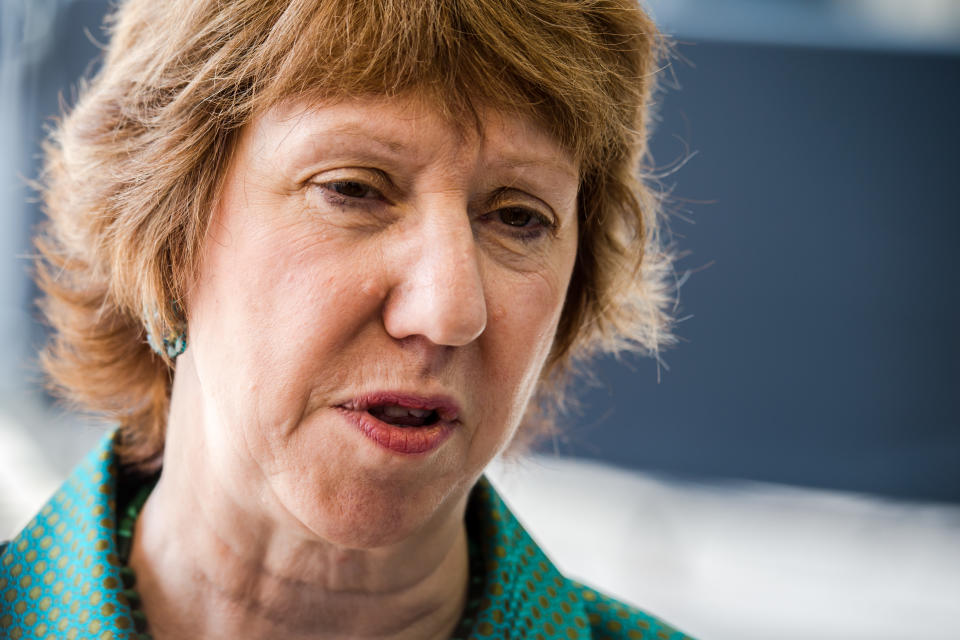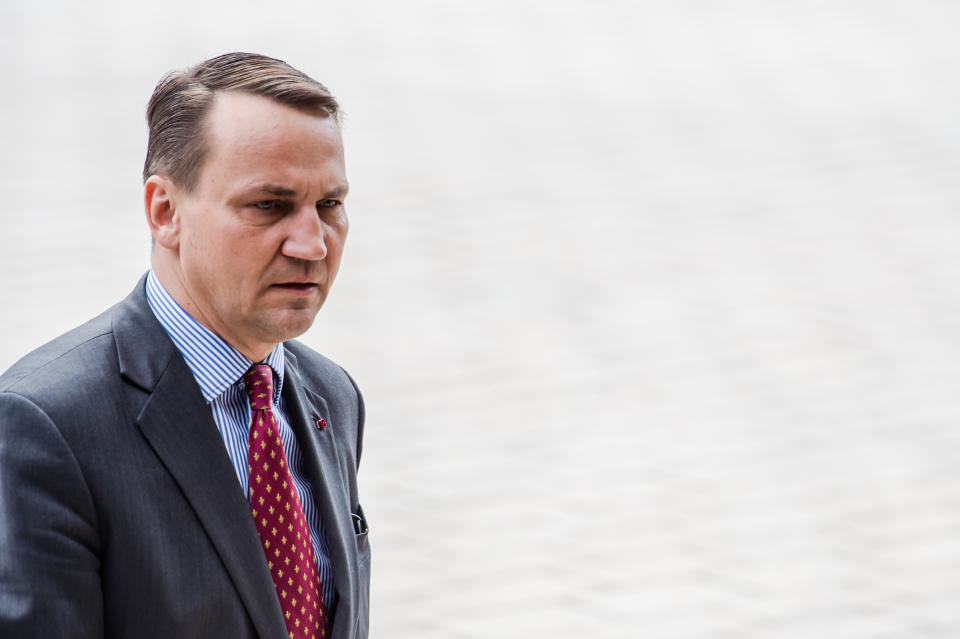EU moves to sanction more Russians over Ukraine
LUXEMBOURG (AP) — European Union foreign ministers decided Monday to sanction more Russians with asset freezes and visa bans as a sign of the trade bloc's outrage over Moscow's ongoing interference in Ukraine, a high-ranking EU official announced.
EU foreign policy chief Catherine Ashton declined to make public the number or the names of any of the Russian officials or citizens affected. Another European Union official, who spoke on condition of anonymity because of a lack of authorization to reveal details, said the decision, adopted unanimously by the trade bloc's 28 foreign ministers, needed to be enshrined in legal documents, and that they will be drafted quickly.
The decision was reached at a meeting of the ministers dominated by the crisis in Ukraine and how the EU should respond, Ashton told a news conference.
"Foreign ministers roundly condemned the illegal armed activity in eastern Ukraine over recent days. We are issuing a very direct call on Russia to publicly repudiate this activity," Irish Foreign Minister Eamon Gilmore said.
Some ministers arrived in Luxembourg talking tough. The coordinated action of armed pro-Russian groups occupying government buildings in eastern Ukraine "is something that is being planned and brought about by Russia," and needs to be met with further sanctions, British Foreign Secretary William Hague said.
Russia has strenuously denied involvement in the escalation of armed violence in eastern Ukraine, but several EU ministers noted events there have echoed what happened in the Crimean Peninsula before Russia unilaterally annexed it.
"The problem is it looks very, very similar to what happened previously in the Crimea. So you know, if it looks like a horse and it walks like a horse, it's usually a horse — and not a zebra," said Frans Timmermans, foreign minister of the Netherlands.
Like many matters in the European Union, though, levying sanctions requires the unanimous consent of member states. What ministers were able to agree on Monday was a public warning that "any further steps by the Russian Federation to destabilize the situation in Ukraine would lead to additional and far-reaching consequences in a broad reach of economic areas" between EU countries and Russia.
Preparatory work on just what those economic measures could be is proceeding.
On Thursday, Ashton is scheduled to meet in Switzerland with Secretary of State John Kerry and the foreign ministers of Russia and Ukraine. Some EU member country governments will be closely watching the Kremlin delegation's actions to determine whether it's time to move to what, in the trade bloc's jargon, is being called Phase III of sanctions.
"What we need to do is use the meeting in Geneva to start talking about how to de-escalate the situation," Ashton said. "It's absolutely vital we find a suitable way through this that is going to bring peace and stability to the whole country."
Laurent Fabius, France's foreign minister, said that if the four-party talks fail to persuade or force Russia to back off in Ukraine, European Union leaders could meet as early as next week for a snap summit to rev up the sanctions regime.
A total of 33 Russian and pro-Russian Crimean politicians, lawmakers, military leaders and other public figures are currently subject to EU asset freezes and visa bans, said Paul Ivan, an analyst at the Brussels-based European Policy Center, an independent think tank. That's more than covered by similar U.S. measures, but in general the targets of EU sanctions are lower-ranking, and don't include members of Russian President Vladimir Putin's innermost circle or oligarchs who support him, Ivan said.
Sanctioning individuals is the second stage of the graduated measures agreed to by EU leaders last month as the best way to bring about a change in Russian behavior. The first stage consisted of highly symbolic actions, for instance the end of bilateral EU-Russia talks on visa liberalization or, in concert with Washington, revocation of Russian membership in what had been the G-8 group of industrialized countries.
___=
Shawn Pogatchnik in the Dublin bureau contributed.






